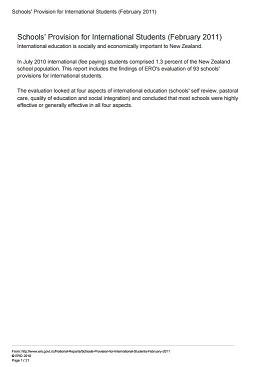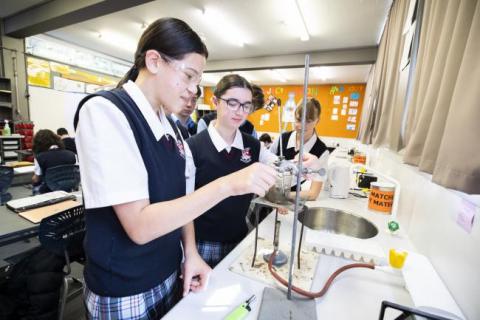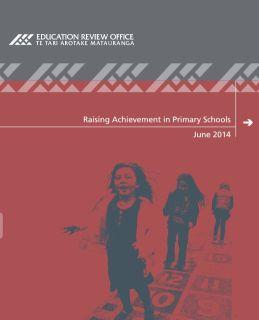Schools’ Provision for International Students
Published: 28 Feb 2011
The evaluation looked at four aspects of international education (schools' self review, pastoral care, quality of education and social integration) and concluded that most schools were highly effective or generally effective in all four aspects.
- Audience:
- Education
- Schools
- Content type:
- Research
- Topics:
- International students
- Pastoral care
- International education
- Evaluation indicators






